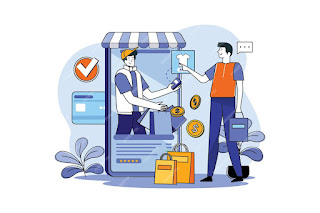The Power of P2P Marketplaces and Redefining Commerce and Connection
Peer-to-peer, or P2P, marketplaces have become revolutionary tools in the field of contemporary commerce, changing the worldwide marketplace and the way individuals buy, sell, and communicate. These virtual communities allow people to interact directly with one another and exchange products, services, and ideas. The emergence of P2P marketplaces represents a change in the e-commerce landscape from centralized, community-driven platforms to traditional retail structures.
The Evolution of P2P Marketplaces
Peer-to-peer networks are the foundation of P2P marketplaces, which have a long history. With the introduction of the internet, they became well-known, and their development has continued to accelerate. Platforms like eBay, Craigslist, an
d Airbnb showcased the capability to connect individuals for transactions, setting the stage for others to follow.
These pioneers set the stage for a wide range of P2P marketplaces serving a variety of markets, including e-commerce, rents, freelancing, and finance.
Empowering Individuals and Small Businesses
P2P marketplaces' capacity to empower people and small enterprises is among their most alluring features. P2P marketplaces offer an even playing field for all players, whether they are independent contractors delivering services or craftsmen selling their wares.
Fostering Trust and Community
Peer-to-peer marketplaces are built on trust. Participant confidence is built on these sites through user reviews, ratings, and safe payment methods. Buyers and sellers can feel comfortable interacting in a lively community that is cultivated by the emphasis on responsibility and openness. The growth and viability of P2P marketplaces are largely attributed to this trust-centric strategy.
Diversification of Offerings
P2P markets are attractive because they are diverse. To meet the varied demands and interests of its clientele, these platforms provide a wide array of goods, services, and encounters. P2P markets offer an extensive range of alternatives, promoting a culture of exploration and discovery, from unique handcrafted items and second-hand goods to lodging rentals and freelancing services.
Impact on Traditional Industries
P2P marketplaces have caused significant disruptions to established sectors. Because of these platforms, industries including retail, finance, hospitality, and transportation have undergone tremendous changes. For example, Airbnb challenged the dominance of traditional hotels by allowing people to rent out their units, revolutionizing the lodging business. In a similar vein, ride-sharing services revolutionized transportation by changing the way individuals commute.
Challenges and Opportunities
P2P markets have many benefits, but they also have regulatory, security, and scalability issues. Regional differences in regulatory complexity present challenges to platform growth. Furthermore, maintaining data privacy and transaction security is also a major worry. But these difficulties also offer chances for creativity and cooperation. Technological developments in blockchain, for example, provide answers for improving P2P transaction security and transparency.
The Future of P2P Marketplaces
The future of peer-to-peer marketplaces seems bright. These platforms will probably incorporate AI-driven personalization, augmented reality for immersive experiences, and decentralized finance (DeFi) for safe transactions as technology advances. In addition, it is anticipated that the sharing economy concept will grow, with P2P marketplaces being essential in advancing resource optimization and sustainability.


Comments
Post a Comment